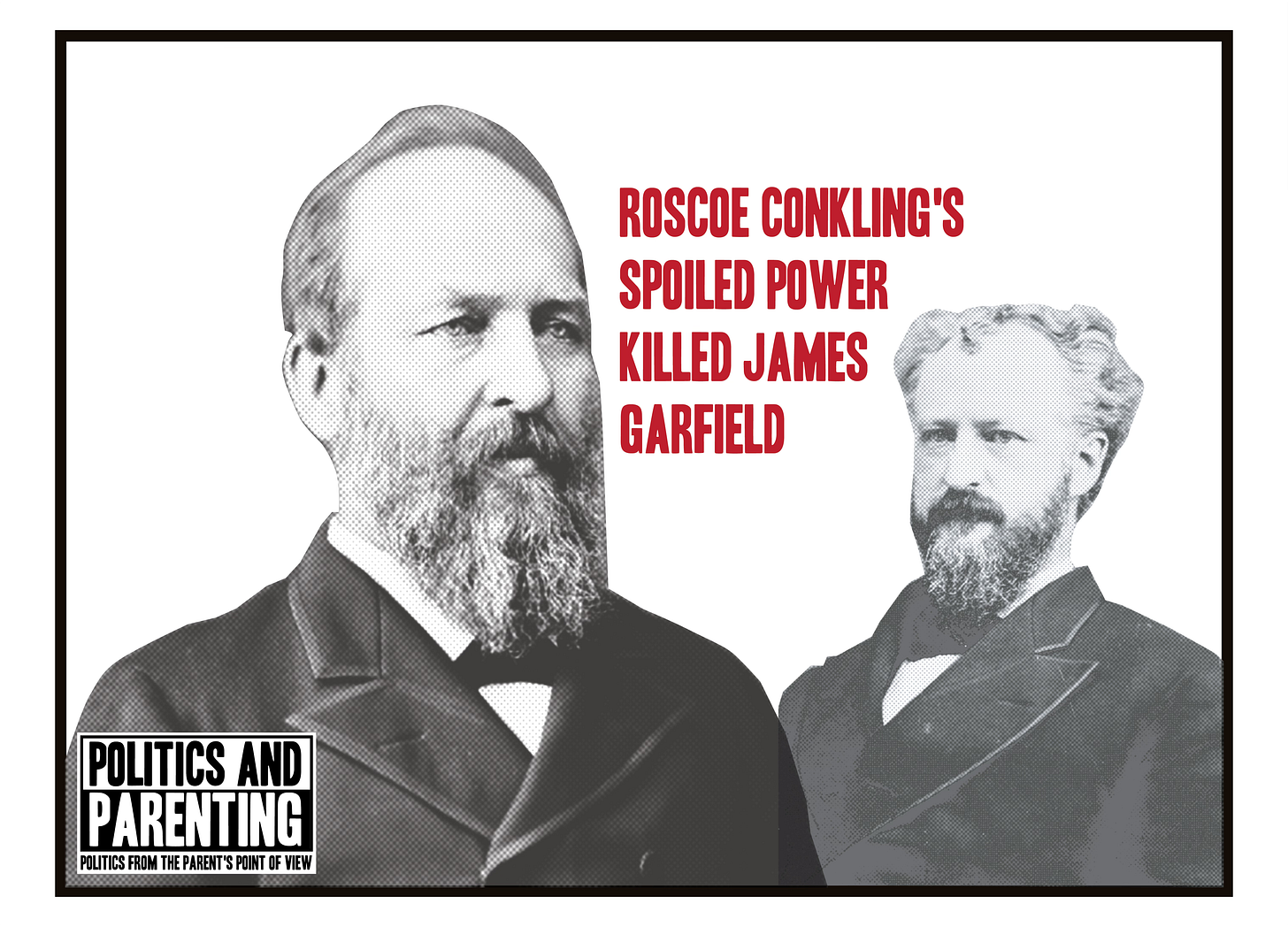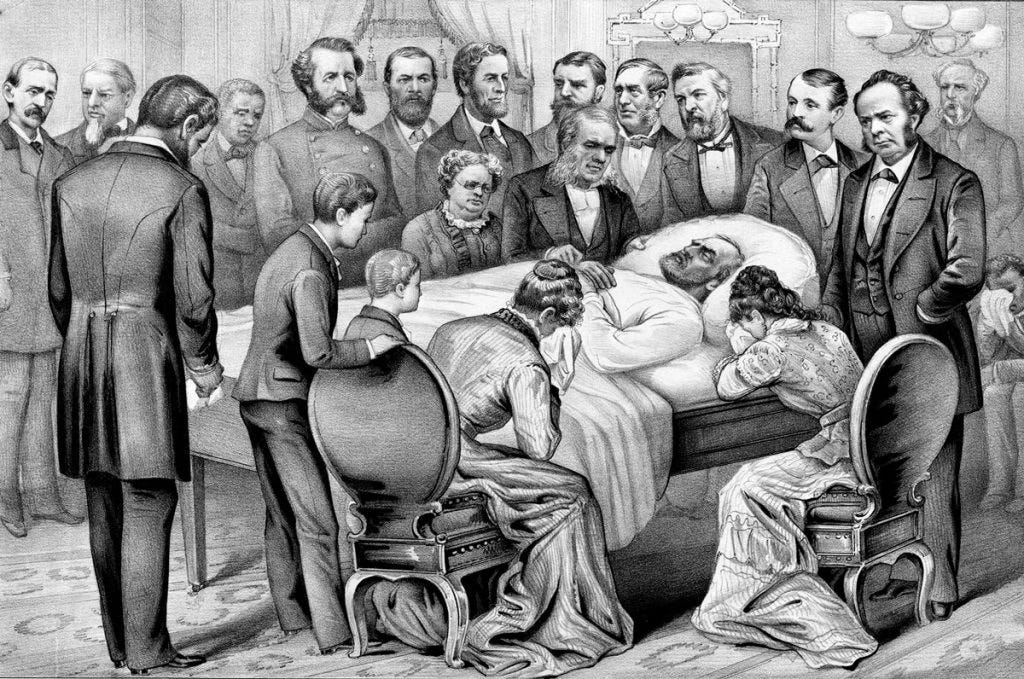Roscoe Conkling's Spoiled Power killed James Garfield.
But not his virtue.
Plutarch, the Greek biographer who recorded the lives of powerful men of the Roman Empire, said, “An imbalance between rich and poor is the oldest and most fatal ailment of all republics.” It’s true, but as republics have extended and compounded, it’s revealed the deeper ailment is a system of spoiled power that creates the imbalance. Leaders of privilege, isolated from the people they serve, use the mechanisms of government for profit and power.
The American Republic was designed to “take in a greater variety of parties and interests,” sharing power with more of the citizenry. The system of checks and balances was designed to incentivize the virtuous to serve the government and limit the passions of our darker side. Power checks power, allowing bad to check good, balancing man's nature.
Allowing a greater variety of parties into the power sphere allows for balance but also creates roadblocks to progress. Political parties were formed to concentrate power and operate the mechanisms of government more efficiently. However, when that concentrated power becomes spoiled and entitled, it operates selfishly and creates a societal divide. Spoiled power is a reoccurring illness of republican government.
We live in an age of Spoiled Power. Decades of pursuing party power have eliminated checks and concentrated power that threaten Americans’ individual liberty and our national sovereignty. In my latest article at The Hill, I challenge those who believe in self-government to change the conversation from who is in power and instead have a conversation focused on reform. As I mentioned in my piece, it has happened before, and overcoming it takes strong leadership.
James Garfield took office in 1881 to bring reform to a polarized and corrupt political system. He led the faction known as the Half-breeds against the Stalwarts and their leader, U.S. Senator from New York Roscoe Conkling. Conkling played politics for power. During Garfield’s nominating process, Conkling balanced the ticket by installing Stalwart Chester A. Arthur as Vice President. Once in office, Garfield took aim at the corrupt patronage system dividing the nation and drove the conversation for reform.
Conkling’s power was concentrated in the New York Custom House, which collected customs duties, a major source of federal revenue at the time. Controlling appointments in the Custom House was the source of his political power and a way to maintain loyalty and support within the party. Conkling used his influence to install his supporters, like Arthur, in key positions, making him a powerful political figure in New York and the national Republican Party.
Garfield nominated William H. Robertson to the position of Collector of the Port of New York. Conkling took this as a direct assault on his patronage power, believing it was made to break up the Stalwart faction. Conkling and his political cronies relentlessly attacked Garfield. When that failed, Conkling and fellow U.S. Senator from New York Thomas Platt resigned, thinking the state legislators would immediately reinstate them. This power play was designed to force concessions from Garfield. However, the state assembly failed to reinstate them.
Then, on July 2nd, 1881, a deranged office seeker named Charles J. Guiteau, disconnected from society, stalked Garfield to the Baltimore and Potomac Railroad and shot him twice. When Guiteau was arrested, he said, “I am a Stalwart, and Arthur will be President.”
Arthur had two months to reflect before Garfield died and he became President. During that time, many suspected Arthur would unload Garfield’s cabinet and bring in his friends like Conkling. However, Arthur’s heart changed, and he separated himself from Conkling. He followed Garfield’s path for reform, signing the Pendleton Civil Service Reform Act on January 16th, 1883.
If Garfield had backed down to the Stalwarts, it’s possible his assassination might have been avoided. By standing up to Conkling and the Stalwarts, he lost his life but changed the conversation. The tragedy of Garfield’s assassination led Arthur to reevaluate his role in government. Instead of being a shill for Conkling and spoiled power, he now understood just how important reform was for a healthy republic.
If you like this story and want to learn more about Garfield and Arthur, check out Destiny of the Republic: A Tale of Madness, Medicine and the Murder of a President by Candice Millard and Unexpected President by Scott S. Greenberger.




